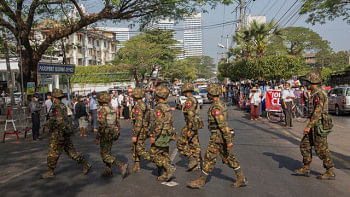Internet outage and freedom of expression

In 2012, a resolution of the United Nations human rights organisation (UNHRC) states, "the rights that people have offline must also be protected online, especially with regard to freedom of expression." Later in 2016, the UNHRC condemned all measures that prevent the use of the Internet as a violation of human rights.
In 2000, Estonia's parliament enacted a law that effectively recognised universal Internet access as a fundamental right. Similarly, France's highest court determined that denying Internet access constitutes a violation of liberty as protected by Article 11 of the 1789 Declaration. In 2010, Costa Rica's Constitutional Court affirmed that Internet access is a human right. That same year, Finland became the first country to legally guarantee broadband access for all its citizens. Additionally, Article 5A of Greece's Constitution mandates that the state must ensure access to the Internet.
In 2020, the Supreme Court of our neighbouring country, India, delivered judgment in the Anuradha Bhasin v Union of India case putting restrictions on the government's power to shut down the internet. The court observed that "the use of the Internet for expression and business is entitled to constitutional protection. The internet cannot be shut down for the purpose of taking away the right to expression. Even if the internet is to be shut down in the interest of national security, the conditions of proportionality and necessity must be met. Every internet shutdown order has to be made public, and the rationale reviewed by a committee headed by the chief secretary within seven days. As well as judicial review, victims can also challenge the justification of internet shutdowns in court."
The opportunity has now come to withdraw from the culture of internet shutdown under the pretext of maintaining public order for political interests. For this, necessary amendments should be made in the Telecommunication Act 2001 and various licensing regulations.
Coming to our jurisdiction, even though Bangladesh does not acknowledge access to the internet as a human right, hindrance to Internet access obviously affects the exercise of the human rights spelled out in our Constitution, resulting in violation of a number of rights, i.e., freedom of expression and information, right to education, right to take part in cultural life, freedom of association and assembly, right to participate in public affairs, etc.
According to Section 97 of the Bangladesh Telecommunications Regulation Act, 2001, the government can order mobile operators and internet service providers to partially or completely shut down the internet if the president declares a state of emergency or 'in the interest of the security of the state or public order in the opinion of the government'. But in reality, the scenario appears to be quite the opposite. As we have seen, government agencies do not usually admit to ordering internet shutdowns. It is noteworthy that although the Act of 2001 only contained the power to shut down the Internet during emergencies, an amendment in February 2006 added the words 'in the interest of state security or public order in the opinion of the government' to Article 97.
If the internet is shut down, then the entire country's economy, including imports, exports, remittances, banking, e-commerce, and f-commerce, suffer greatly both in the short and long term. As a result, shutting down the Internet as a tool to suppress protests or agitations is nothing but a suicidal act. Following the fall of the previous government in the face of a mass uprising, the opportunity has now come to withdraw from the culture of internet shutdown under the pretext of maintaining public order for political interests. For this, necessary amendments should be made in the Telecommunication Act 2001 and various licensing regulations. This way we can uphold the right to access the Internet and respect the spirit of freedom of expression guaranteed by our sacred constitution, the solemn expression of the will of the people of Bangladesh.
The writer is student of law, University of Dhaka.

 For all latest news, follow The Daily Star's Google News channel.
For all latest news, follow The Daily Star's Google News channel. 



Comments